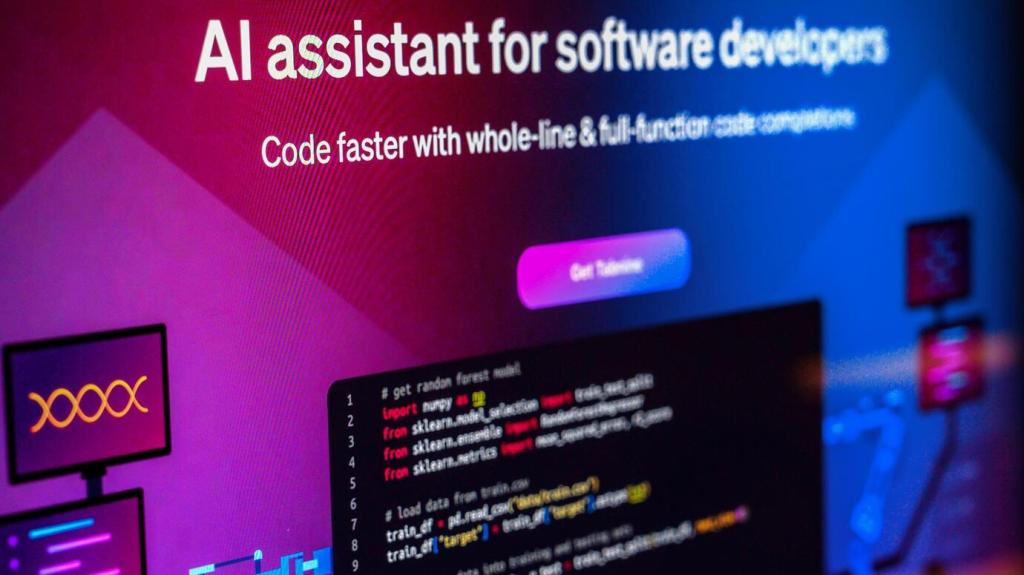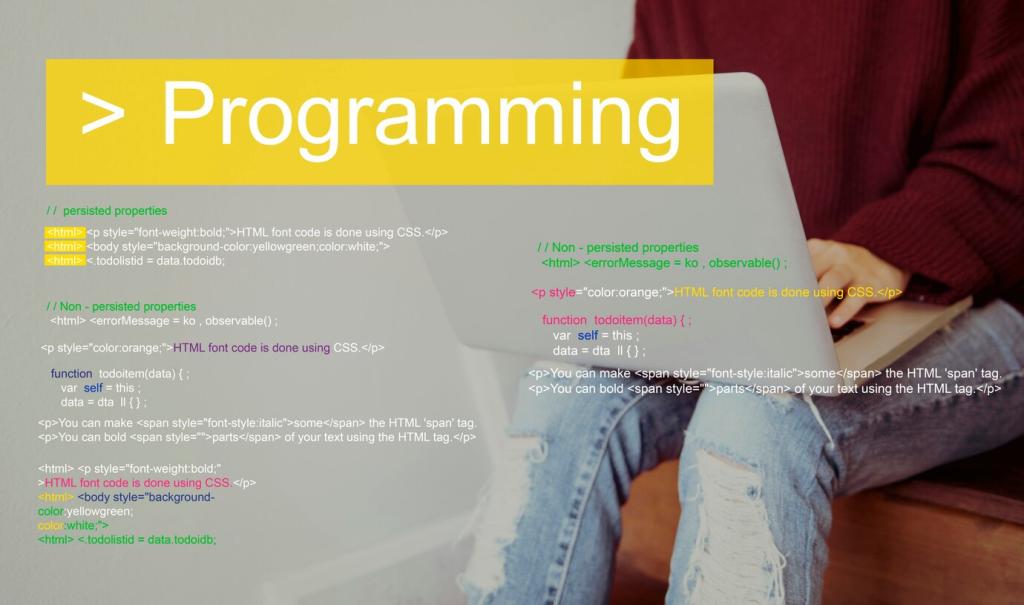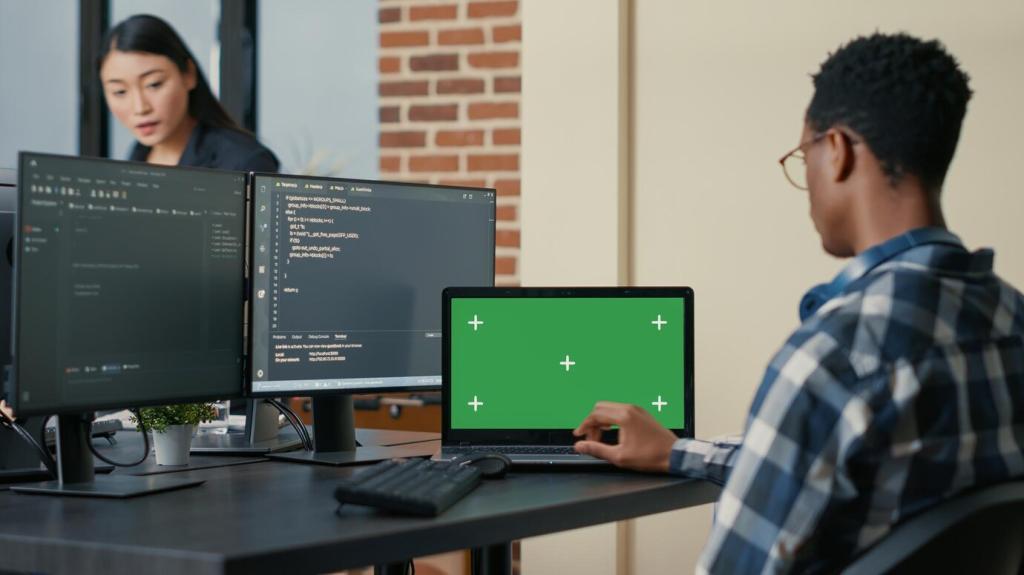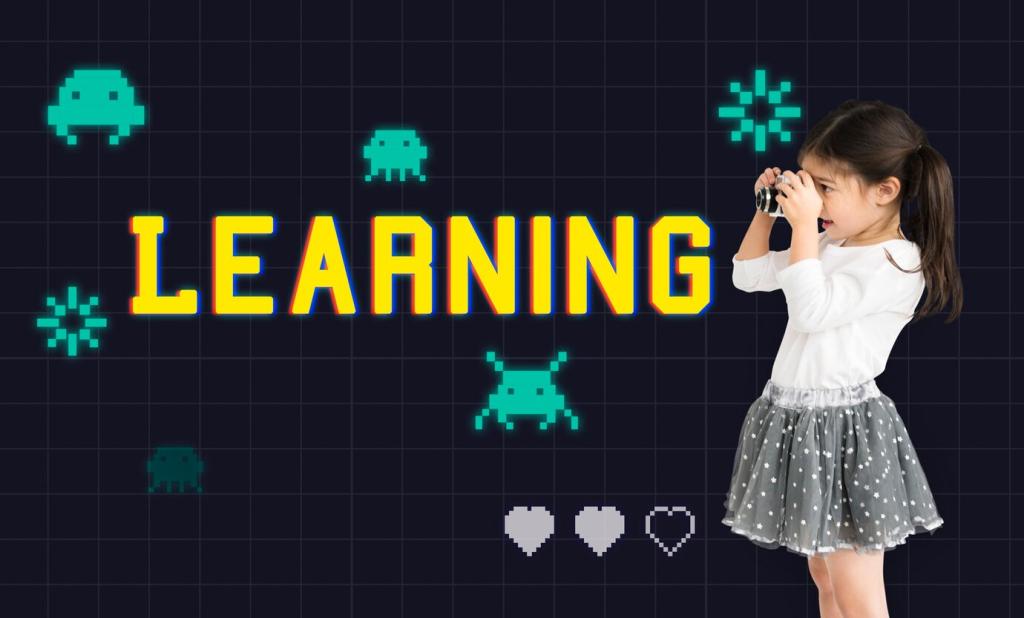
Mastering Programming: Essential Skills for Beginners
Chosen theme: Mastering Programming: Essential Skills for Beginners. Start your coding journey with courage, clarity, and curiosity. We will guide you through mindset, core concepts, problem-solving, debugging, collaboration, and continual growth so you can write code you are proud to share. Join the conversation, subscribe for weekly prompts, and take your first confident steps today.



Core Syntax and Semantics: Speaking Your First Language
Focus on the essentials you will use daily: declaring variables, writing if statements, crafting loops, and defining functions. Read error messages carefully and fix one issue at a time. Practice copying patterns, then explain each character’s purpose in your own words.
Core Syntax and Semantics: Speaking Your First Language
Semantics is about meaning, not punctuation. Visualize memory boxes holding values, and imagine data flowing through branches and loops. Draw diagrams of what changes at each line. When your mental model matches reality, bugs shrink and your confidence grows noticeably.

Write your plan in plain language before code. Identify inputs, outputs, and constraints. Then outline steps like gather data, filter, transform, and display. Translate each step into a function. This method keeps you moving when details feel overwhelming or confusing.
Everyday Algorithms: Practical Problem-Solving Skills

Reproduce, reduce, resolve
First, make the bug happen on demand. Then remove code until the smallest version still fails. Finally, test one hypothesis at a time. This scientific approach lowers stress and raises success. Share your minimal example and what you learned from simplifying.

Tools that save hours
Learn to set breakpoints, inspect variables, and step through execution. Print statements are helpful but stepping reveals the exact moment things go wrong. Document one debugging session this week and compare how you felt before and after the investigation.

Version Control Foundations: Git for Absolute Beginners
Initialize a repository, commit early, and commit often. Create feature branches for experiments and merge when tests pass. Push to a remote for backups. These habits prevent disasters and invite collaboration. Tell us your first repository name to celebrate your start.
Projects, Feedback, and Lifelong Learning
Pick something useful to you or a friend: a recipe sorter, study timer, or budget helper. Define success in one sentence. Release a minimal version soon. Invite a friend to test and report friction. Iterate until it feels effortless and smooth.
Projects, Feedback, and Lifelong Learning
Feedback is fuel for growth. Share a link, describe your goals, and ask two focused questions. For example, is navigation clear and does input validation feel friendly. We will offer supportive, specific suggestions that help you move forward confidently and quickly.
Projects, Feedback, and Lifelong Learning
Schedule short, regular sessions, like twenty-five minutes daily. Rotate topics: fundamentals, practice, review. Use spaced repetition for concepts and patterns. Celebrate streaks, not just outcomes. Post your plan, then return next week to reflect and inspire another beginner.
